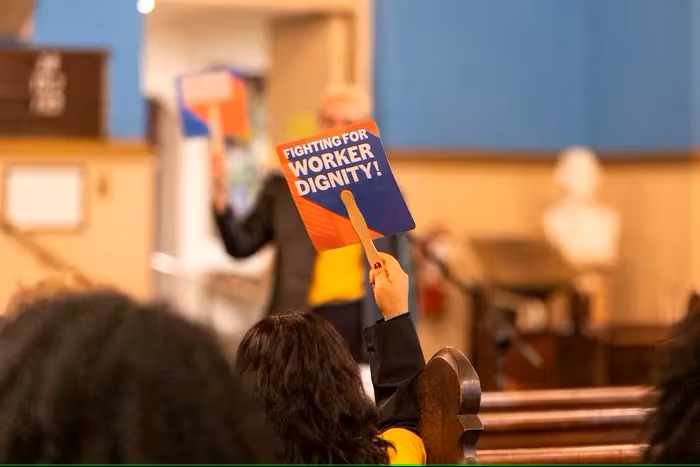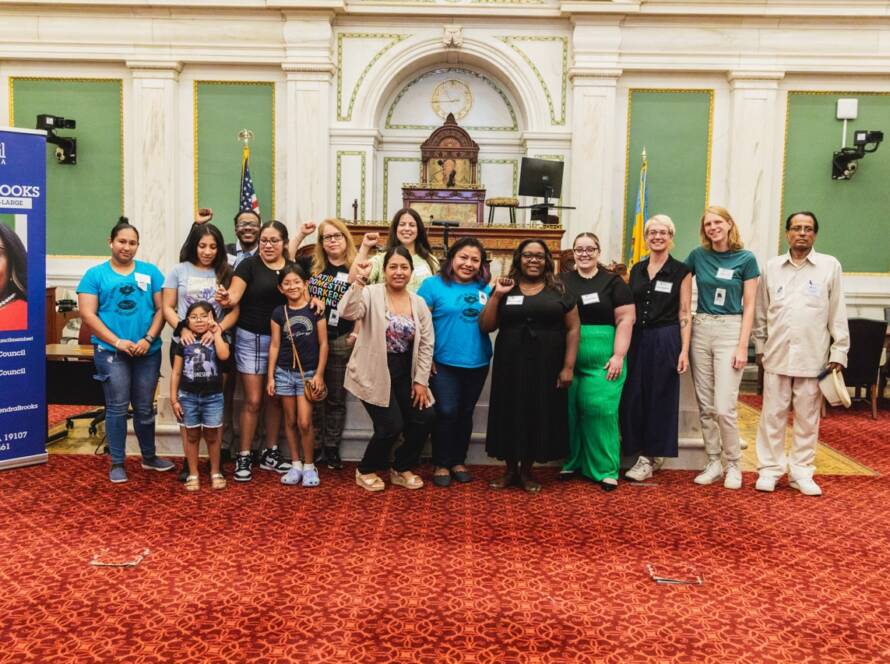The first time Yuris Reyes asked for paid sick leave, she was turned down. “My bosses told me that paid sick leave was only for the managers and not something I was entitled to,” says the Philadelphia restaurant worker.
That didn’t sound right to Yuris, who is a member of El Comité de Trabajadorxs de Restaurante (the Restaurant Workers Committee), a local advocacy group. She filed an anonymous complaint about her employer with the city of Philadelphia, which has had a paid sick leave law on the books since 2015.
The next time she was ill and needed a leave, Yuris showed her employers a link to the relevant city law. “I had fever-like symptoms and I called out sick. When I came back, I was paid for all my sick time, without an issue in my next check. Sometimes, I think that they think that because I’m Hispanic, and came to this country to work, that I don’t know my rights or won’t fight for them.”
El Comité committee is sponsored by the Coalition for Restaurant Health and Safety (CRSH) and 215 People’s Alliance. CRSH has been supported by PhilaPOSH, a labor and community-based organization with a long track record of advocating for safer workplaces. PhilaPOSH is an affiliate of my organization, the National Council for Occupational Safety and Health (National COSH).
In early December, members of El Comité will join several hundred workers and labor activists at the National Conference on Worker Safety and Health (COSHCON22). It’s a place where workers like Yuris can gather more information and resources about building power in the workplace to confront and reduce the risk of occupational hazards.
One issue we’ll definitely cover is the ongoing risk of Covid-19. Although President Biden declared the coronavirus pandemic to be “over” in September, the reality is far different for frontline workers, in restaurants and other industries, who are exposed to the risk of infection on a daily basis.
While there is no effective tracking of workplace exposures, illnesses, and fatalities from the virus, insurance company claims indicate that deaths among the working-age population, between 18 and 64 years of age, have increased by as much as 40 percent from pre-pandemic levels. Age-adjusted data shows that Latinx, Black, Pacific Islander and Indigenous populations suffer far higher death rates than whites. These same populations are frequently over-represented in high-risk frontline industries such as slaughterhouses, nursing homes, and corrections facilities, and often experience disparities in access to health care. READ MORE…



